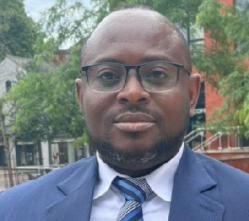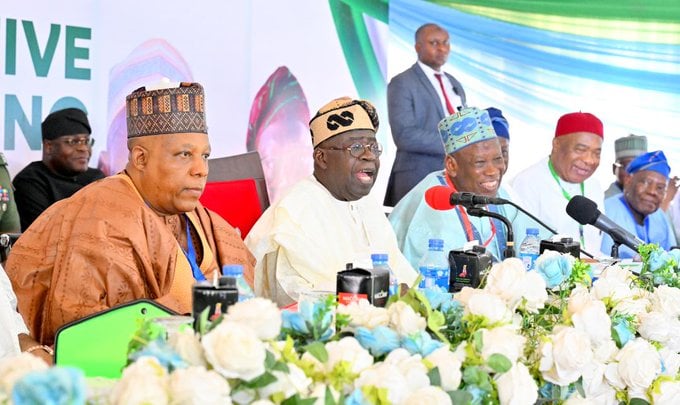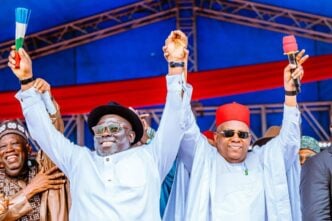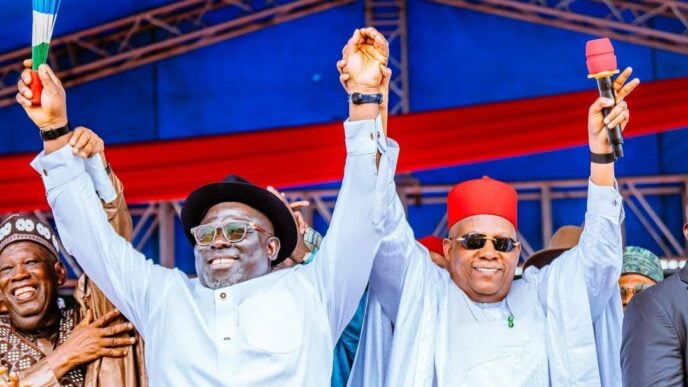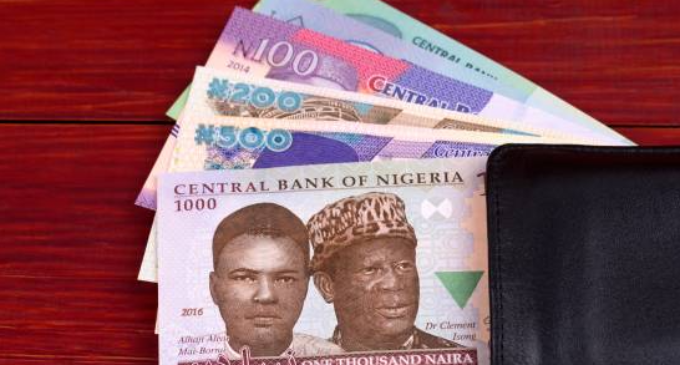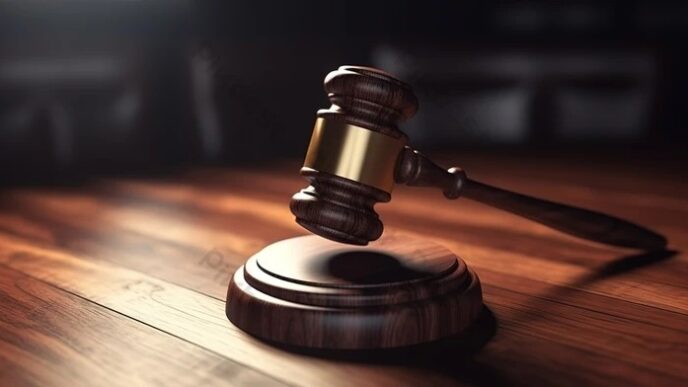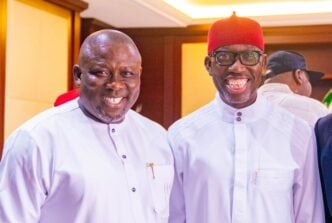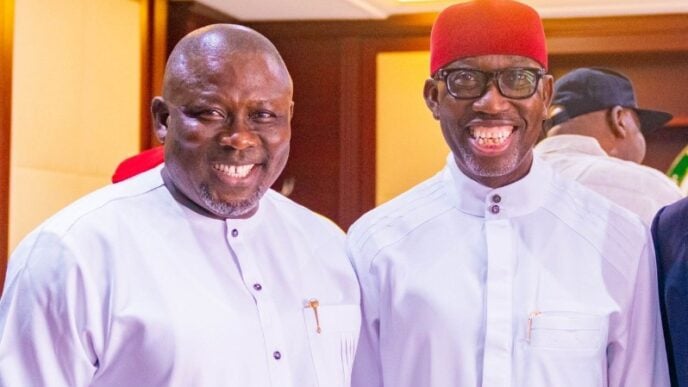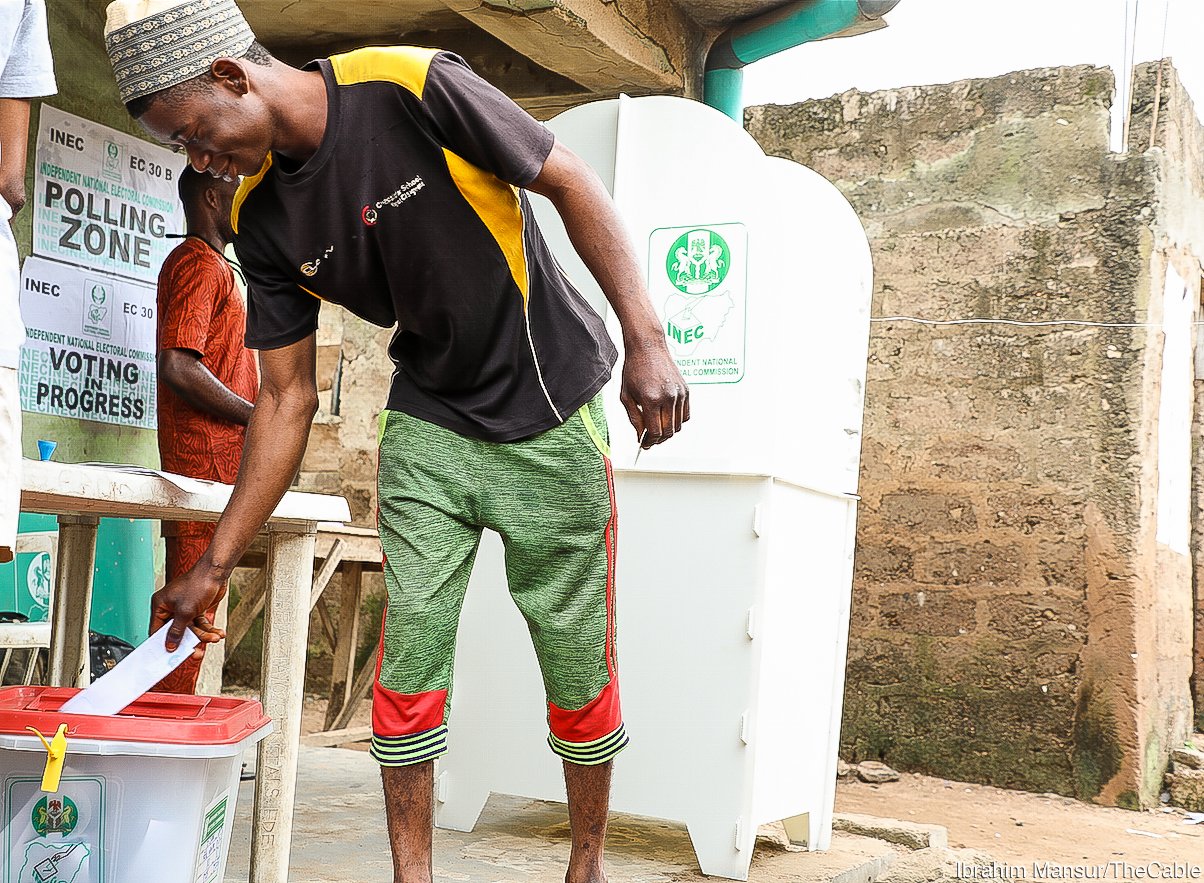Last week, a group of 17 influential Nigerians and civil society activists, including human rights activist Chidi Odinkalu, Prof. Adele Jinadu, Abdul Mahmud, Osa Director, former presidential adviser, Babafemi Ojudu, and lawyer Richard Akinnola, issued a stark warning to President Bola Tinubu, alleging a deliberate campaign to undermine Nigeria’s democracy and steer the nation towards a one-party system.
In a strongly worded statement titled ‘Defending Democracy: A Call to Resist the March Toward a One-Party State in Nigeria’, the concerned citizens expressed deep alarm over what they described as a “calculated and systematic effort by the administration of President Bola Ahmed Tinubu to dismantle the democratic foundations of our republic.”
The signatories accused the current administration of employing underhanded tactics to weaken opposition parties. They accused the administration of using bribery, blackmail, and coercion to weaken opposition parties, claiming that political figures are defecting to the ruling party not out of conviction but out of fear and pressure.
In its response, the presidency through Bayo Onanuga, special adviser on information and strategy, described the claims by the democrats as baseless without any shred of evidence. He also labelled the activists as alarmists and hypocrites who rejoiced when a former governor of the APC left the party for the SDP but are crying wolf after the governor of Delta state and his predecessor joined the ruling party.
Advertisement
“We must add that no policy, official action, or directive from the presidency seeks to “dismantle democracy” or “weaken opposition or create a one-party state. Accusations of bribery, blackmail, and the weaponisation of state institutions only exist in the idle minds of politicians and their agents who have failed in their assigned role of opposition and are fishing for scapegoats,” he said.
“We want to state that democracy is not threatened or undermined simply because politicians exercise their rights to freedom of association. Nigerians migrating to the APC and expressing support for Tinubu are doing so out of their free will, based on the belief that the reforms being executed are in the interest of Nigerians and the unborn generation. It is a gross disservice to democracy in itself for these emergency defenders of democracy to delegitimise the political choices of some Nigerians while upholding the choices of others to form a coalition against Tinubu and APC.”
While I may not fully agree with Mr Onanuga’s choice of words, especially in describing the democrats as ‘alarmists’, ‘idle minds’, ‘latter-day defenders of democracy’ and so on, he said something very instructive in his statement: “The opposition cannot blame President Tinubu and the governing APC for their poor organisation, indiscipline, and gross incompetence in managing their affairs. It is certainly not part of President Tinubu’s job to organise or strengthen opposition parties.”
Advertisement
Yes, the opposition cannot blame President Tinubu for failing to align and put heads together to form a strong, virile party that can give the ruling APC a run for its money in 2027. Did President Tinubu stop the opposition from forming a merger or alliance like the APC did in 2013? Rather than agree, the political leaders keep working at cross-purposes simply because of selfish ambition.
Like I wrote in my article last week titled ‘2027 Presidency: A North vs South contest?’, I don’t expect Alhaji Atiku Abubakar to come out and say he wants to contest in 2027. His unbridled appetite for power and failure to respect the unwritten power rotation between the north and south are primarily responsible for the near-death of the PDP today.
If Atiku had respected that zoning agreement or had made some compromise on the issue of his running mate and then national chairman of the party, Iyorchia Ayu, maybe the issue of Nigeria drifting towards a one-party state wouldn’t have arisen today. As said by Dubai ruler, Sheikh Mohammed bin Rashid Al Maktoum, on page 7 of his book ‘My Vision – Challenges in The Race for Excellence: “This is the kind of crisis that is bound to happen when lust for power prevails over granting people the love and care they deserve and when the interests and destiny of one individual become more important than those of a whole nation.”
Atiku’s running mate in the 2023 presidential election, Ifeanyi Okowa, who dumped the PDP for the APC last week, said he regretted accepting to be the running mate to Atiku in the 2023 presidential election. His reason? He realised that the mood of southerners was that the zone should produce the president. That was hypocrisy at its peak from Okowa. He was in attendance at the various meetings held by Southern governors where they insisted that the next president of Nigeria in 2023 must come from the region. He betrayed his colleagues by clandestinely supporting Atiku to win the PDP ticket, and he was rewarded with the vice-presidential candidate slot.
Advertisement
Now after his invitation by the EFCC, Okowa allegedly ran to the APC for cover, and he is now claiming that he joined the ruling party in the best interest of Delta State. Would Okowa have regretted his actions if Atiku had won the election and he were now the sitting vice president? These are the people without ideology that killed the opposition parties in Nigeria. Why should anyone blame President Tinubu for that?
On the issue of EFCC being used to witch-hunt opposition party members to join the APC, that also did not start today. I remembered during the Obasanjo presidency, President Tinubu, who was then governor of Lagos, and his then-party, the defunct Action Congress (AC), warned against the danger of a one-party state. He also issued the warning during the Goodluck Jonathan presidency.
On his Facebook profile, Richard Akinnola, a respected journalist and lawyer whom I have tremendous respect for, even shared a news story from a newspaper published in August 2010 titled ‘Tinubu warns against one-party state’. So, if Tinubu, as a leading opposition figure, can raise the alarm then, Akinnola, Odinkalu, Momodu and others also have a right to do so today, and they shouldn’t be pilloried, harangued or crucified for doing so.
Lastly, today’s opposition leaders should learn from President Tinubu and how to play a good opposition. Tinubu, as governor of Lagos State, remained the last governor standing in the South-West when the PDP tsunami orchestrated by the then president, Olusegun Obasanjo, wreaked havoc in Ogun, Osun, Ekiti, Oyo and Ondo. As the only surviving governor of the Alliance for Democracy (AD) in the South-West, Tinubu refused the overtures to join the then ruling party.
Advertisement
Most of his policies were frustrated by the PDP-led federal government, but he remained resolute and played the role of opposition leader effectively well. Obasanjo’s seizure of Lagos State funds did not deter him. When Obasanjo fell out with his then deputy, Atiku Abubakar, Tinubu maximised that crisis by showing support to Atiku and even made Atiku the presidential candidate of AC in 2027, thereby giving his party, which was more or less a regional party, some national semblance. A lot of northerners voted for AC because of their son, Atiku.
In 2011, Tinubu was dragged before the Code of Conduct Tribunal (CCT) by the PDP-led federal government on the allegations that he operated 10 foreign accounts while in office between 1999 and 2007. Unlike the likes of Okowa, who jumped ship, Tinubu answered all the charges and was cleared. He formed an alliance with former president Muhammadu Buhari and other opposition leaders and formed the APC to challenge the almighty PDP, which one of the leaders boasted will rule Nigeria for 60 years.
Advertisement
Tinubu is now the president. How many of today’s opposition leaders are willing to make the same sacrifice and travel the similar route for the love of the country? If the country is bad and badly mismanaged, beyond constructive criticism which is necessary, what steps are the opposition taking to ensure there is better governance from 2027 and beyond?
Despite his erratic behaviour, a presidency source informed me that one of the reasons President Tinubu is fond of Nyesom Wike, the current FCT Minister and immediate past governor of Rivers State, is because, like himself, Wike has remained in his party since 1999 without jumping ship like many politicians without ideologies. Despite serving in the cabinet of an APC-controlled party, Wike is still laying claim to being a member of his party, even though some may argue that he is working from within to weaken the party in order to give his principal the advantage in 2027. Will anyone blame him for doing so?
Advertisement
Akinsuyi, former group politics editor of Daily Independent, currently studies sustainability communications strategies at the London School of Economics and Political Science.
Advertisement
Views expressed by contributors are strictly personal and not of TheCable.
